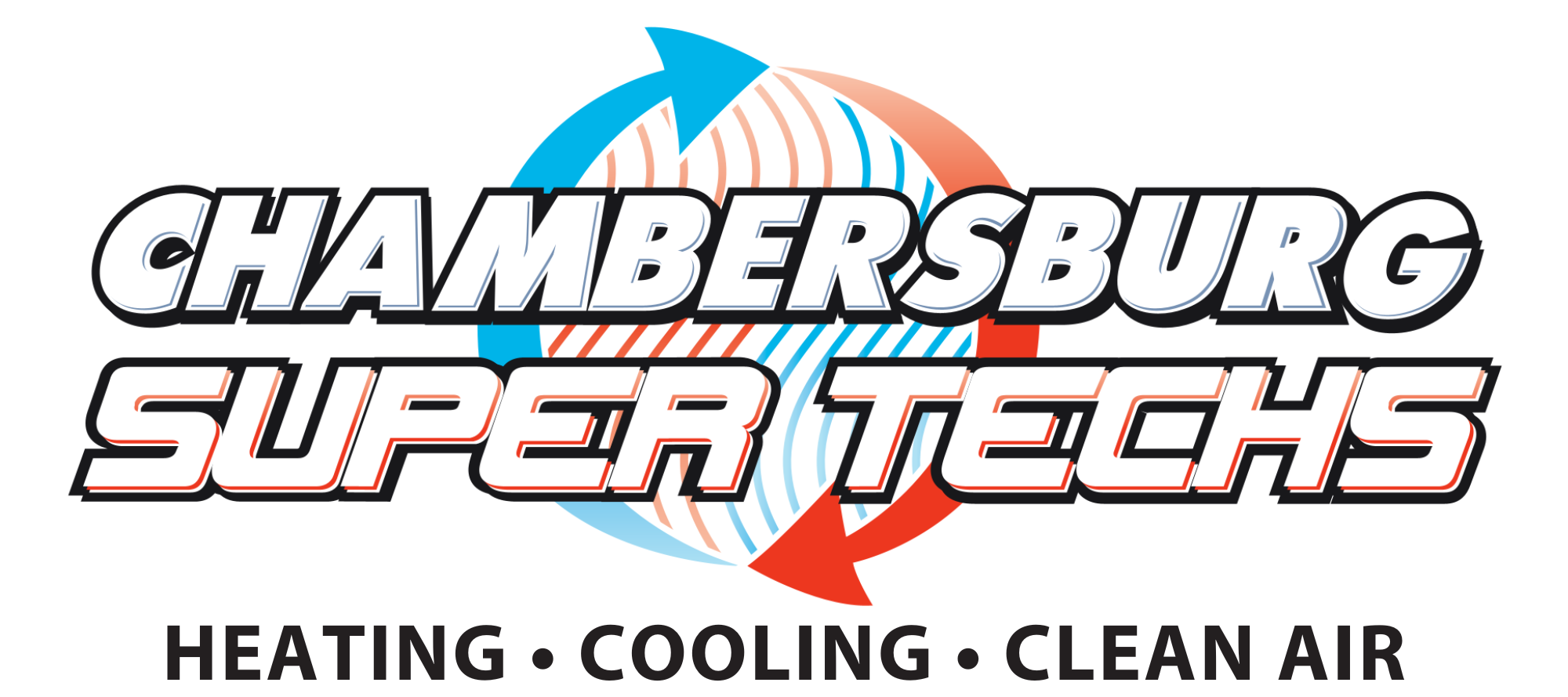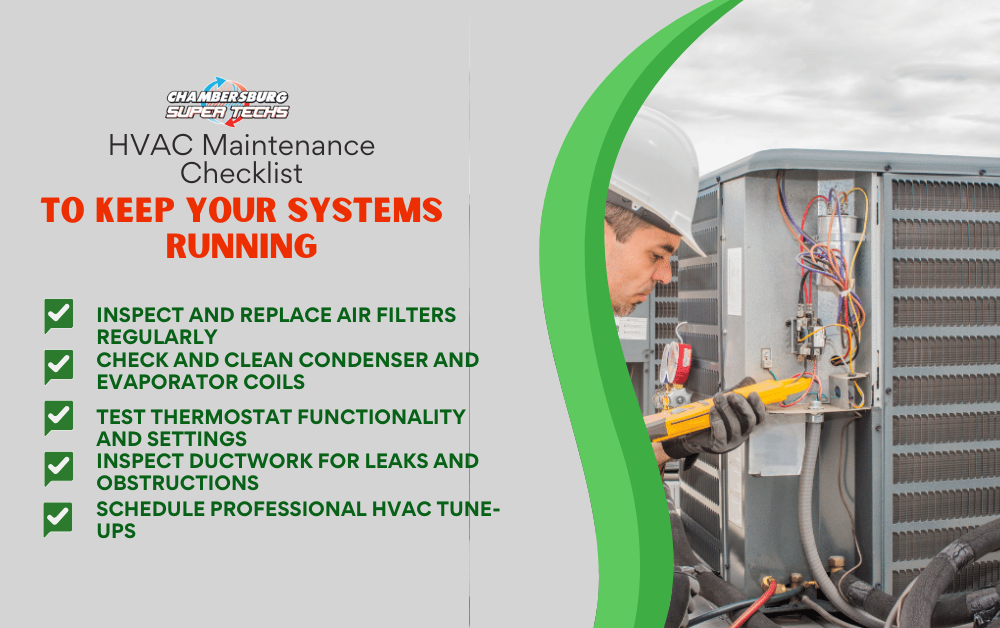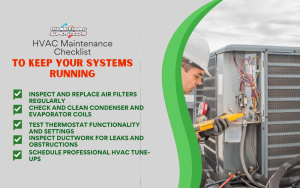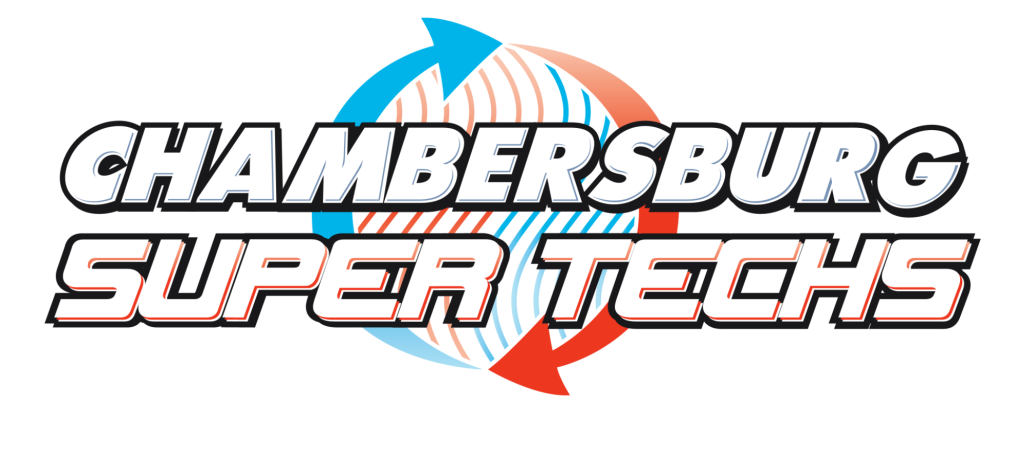Comfort in your home largely depends on a reliable HVAC system throughout the year. It regulates temperature, humidity, and indoor air quality, making it one of the most critical systems in your home. A well-functioning HVAC system improves both comfort and energy efficiency. When issues arise, it’s crucial to address them quickly to avoid larger problems down the line.
One of the biggest challenges homeowners face is deciding between repairing and replacing their HVAC system—the most suitable option changes based on the unique details of the circumstances of the situation. While repairs may seem more affordable at first, replacement can offer long-term benefits. Understanding the difference helps you make a more intelligent financial and comfort-related decision.
At Chambersburg Super Techs, we’ve helped many homeowners navigate this decision with confidence. Making the correct choice now can save you money and stress later. This guide is here to provide helpful insights so you know exactly what your system needs. With the correct information, you can protect your investment and stay comfortable year-round.
What Is HVAC Repair?
Understanding the Basics of HVAC Repair
HVAC repair refers to fixing a specific problem within your system to restore proper function. This can involve replacing parts, clearing blockages, or correcting electrical issues. Repairs are focused solutions meant to address isolated system failures. They are often done on-site and within a short timeframe by a certified technician.
Everyday Repair Situations You Might Encounter
Some of the most common HVAC repairs include thermostat malfunctions, clogged air filters, refrigerant leaks, and blown fuses. These issues, while disruptive, are usually manageable and relatively inexpensive to fix. Repairs like these are typically a quick way to restore performance. They help prevent more serious damage if caught early.
When Repairs Make Sense for Your System
HVAC repair makes the most sense when the system is still relatively new and the problem is minor. If the issue hasn’t occurred before and doesn’t affect the entire system, a repair is usually sufficient. Well-maintained systems often just need a simple fix to get back on track. It’s a cost-effective solution for short-term performance and reliability.
What Is HVAC Replacement?
Defining Full HVAC System Replacement
HVAC replacement means removing your current system and installing a brand-new one. This can include replacing the furnace, air conditioner, heat pump, or even the ductwork. It’s a larger project that requires planning, professional installation, and investment. However, it comes with many long-term benefits for your home and comfort.
What’s Involved in Replacing Your HVAC System
A complete HVAC replacement begins with evaluating your current system’s condition and performance. Your contractor will then help you choose the right size and model based on your home’s needs. Once selected, your old system is removed and the new one installed according to safety and efficiency standards. This process ensures long-term comfort and energy savings.
When a Replacement Becomes the Better Option
HVAC replacement is often the better choice when your system is over 10–15 years old. If repairs have become frequent or energy bills are climbing, a new system may save you money over time. Replacement also makes sense when parts are no longer available for your old system. With newer technology, you’ll enjoy better performance and reliability.
Key Differences Between Repair and Replacement
Comparing Immediate and Long-Term Costs
Repairing your HVAC system often costs less up front and can seem like the obvious choice. However, if you’re fixing the same issue repeatedly, those costs add up quickly. Replacing the system may involve a larger initial investment, but it pays off through lower utility bills and fewer breakdowns. Over time, replacement often becomes more affordable than ongoing repairs.
Considering the Age of Your HVAC System
The age of your HVAC system plays a massive role in this decision. Older systems often face more frequent problems and are less efficient overall. Even well-maintained units can begin to show signs of wear that lead to more frequent issues. Replacing an older system can help you avoid the unpredictability of continued repairs.
Evaluating Energy Efficiency and Reliability
As HVAC systems age, they often demand more power to maintain performance and may no longer meet modern efficiency standards. A new system will run more efficiently, keeping your home more comfortable while lowering monthly bills. If your current unit struggles to keep up with seasonal demands, replacement can provide consistent performance. Reliability and peace of mind are significant advantages of upgrading.
How to Decide: Repair or Replace?
Using the $5,000 Rule as a Guide
A helpful guideline for many homeowners is the “$5,000 rule.” You multiply the age of your system by the cost of the needed repair—if the result is more than $5,000, replacement is usually the better option. This calculation serves as a practical tool for determining long-term value. It’s a simple way to make a financially sound decision.
Questions Every Homeowner Should Ask
Before making a final decision, ask yourself a few critical questions. Is your system older than 10–15 years? Have your energy bills been increasing steadily? Are you dealing with frequent or repeated repairs? Answering yes to any of these suggests HVAC replacement may be the right move.
Get a Professional Assessment from Chambersburg Super Techs
An expert evaluation can help you make the most informed decision for your home and budget. At Chambersburg Super Techs, we provide detailed system assessments and honest recommendations. We’ll let you know whether a repair is still viable or if replacement makes more sense. Our goal is to give you clear answers and peace of mind.
Benefits of HVAC Replacement
Greater Efficiency and Lower Utility Bills
One of the most appealing benefits of HVAC replacement is improved energy efficiency. New systems use less power to deliver better performance, which directly reduces your utility bills. Over time, this can result in significant savings, especially during extreme weather. Replacing your system is an investment that pays off month after month.
Improved Indoor Comfort and Air Quality
A new HVAC system offers better airflow, more consistent temperatures, and advanced humidity control. These improvements lead to a noticeable boost in comfort throughout your home. You’ll also benefit from cleaner indoor air and fewer allergens. All of this contributes to a healthier, more comfortable living environment.
Fewer Breakdowns and Better Financial Options
New HVAC systems are built to last and typically feature complete warranty protection for materials and artistry for years. This means fewer surprise repair bills and more predictable maintenance needs. Many systems also qualify for rebates or financing, making HVAC replacement more accessible. Upgrading now can eliminate the stress of ongoing issues and expenses.
When HVAC Repair Makes Sense
Isolated Problems in a Relatively New System
If your HVAC system is under 10 years old and well-maintained, a repair may be all that’s needed. Problems like a failed capacitor or minor wiring issue can often be resolved quickly. Repairs on newer systems are generally more cost-effective and less disruptive. They allow you to get the most out of your current unit before investing in a new one.
Budget Constraints and Short-Term Fixes
We understand that HVAC replacement isn’t always financially feasible at the moment. A repair can offer a temporary solution to keep your system running while you plan for a future upgrade. This approach helps you manage immediate comfort needs without committing to a full replacement. In the meantime, it’s wise to start budgeting and exploring financing options.
Issues Caused by Maintenance Neglect
Some HVAC problems are the result of poor or infrequent maintenance, such as dirty filters or blocked condensate drains. These issues can mimic the signs of a failing system but are often easily fixed. In such cases, repair is both affordable and effective.
Conclusion
Know the Signs and Weigh the Options
Making the right decision between HVAC repair and HVAC replacement starts with understanding your system. Age, efficiency, and frequency of issues all play key roles in determining your next step. When you know your options, you’re less likely to face avoidable expenses and service interruptions. A well-informed choice will keep your home comfortable and your energy bills under control.
Don’t Delay Important Decisions
Putting off a needed repair or replacement can lead to more costly problems down the line. Your home’s comfort and air quality depend on a reliable system. Addressing issues early ensures that you’re prepared for seasonal temperature changes.
Trust Chambersburg Super Techs for Expert Guidance
Whether you need a quick repair or a complete HVAC replacement, Chambersburg Super Techs is here to help. Our team offers honest advice, expert service, and reliable support to homeowners throughout the Chambersburg area. Let us help you make the right choice for your home and budget. Reach out today and take the first step toward a more efficient and comfortable living space.
Still not sure whether to repair or replace your HVAC system? Contact Chambersburg Super Techs today for a free consultation and expert guidance on the best path forward. We’re committed to helping you make a wise, stress-free decision that fits your needs and your budget.




